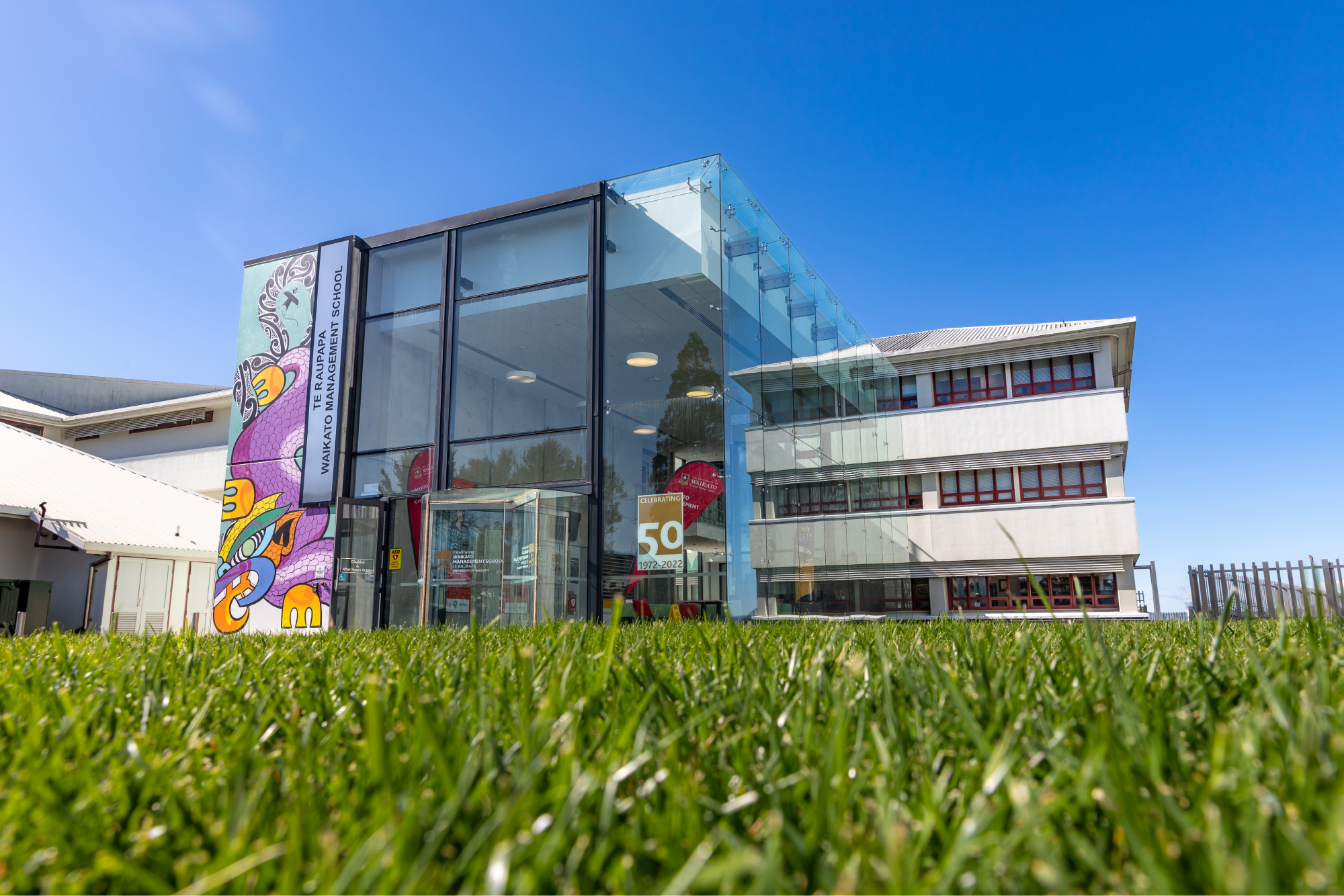Faculties and Schools
The University of Waikato is organised into academic, research and service departments, with academic faculties and schools organised into divisions.

-
Te Kura Toi | School of Arts
-
Au Reikura | School of Computing and Mathematical Sciences
-
Te Kura Toi Tangata | School of Education
-
Te Kura Mata-Ao | School of Engineering
-
Te Mata Kairangi | School of Graduate Research
-
Division of Health
-
Te Piringa | Faculty of Law
-
Te Raupapa | Waikato Management School
-
Te Pua Wānanga ki te Ao | Faculty of Māori and Indigenous Studies
-
Te Kura Whatu Oho Mauri | School of Psychology
-
Te Aka Mātuatua | School of Science
-
Te Kura Aronui | School of Social Sciences

University of Waikato College | Te Kura Huanui
The College offers university preparation courses, and foundation, bridging and English language programmes. They also support international study groups in range of discipline areas and train teachers who want to teach English to adults.